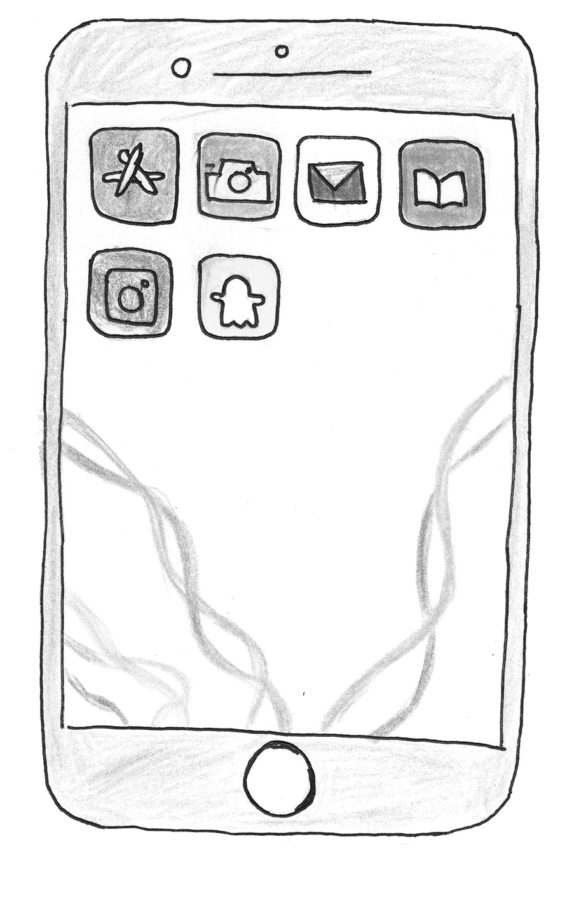Opinion: To learn how social media affects you, stop using it
On September 15th, 2019, I decided to take a leap of faith and do something that I had been thinking about for the last few months. I pulled my phone out of my back pocket, quickly typed in my passcode and, without a second thought, held my finger down on Instagram and Snapchat and clicked the tiny X button. I turned off my phone, returned it to my pocket and headed to school.
I wasn’t deleting social media forever, I was only taking a short social media “cleanse”. It’s something many people, including Urban students, have been doing recently. One Urban student, in response to an Urban Legend survey about phone usage, said, “I like to do days/weeks at a time without Instagram, and I feel like I go to bed earlier, and I make more art.” Another student wrote that they too had, at times, deleted social media. In their opinion, “it makes you feel more confident, but you also miss out on a lot.”
Social media has a reputation for being a dangerous creation, a technology that is rotting the minds of the youth. And sure, these aren’t unsupported, far out claims; there are scores of studies that back up these assertions. One article by TIME magazine reported that Instagram, in particular, is “associated with high levels of anxiety, depression, bullying, and FOMO.” Another study from Harvard University concluded that social media is incredibly addictive, with tests proving that using these sites activates the same parts of our brains as other addictive substances, such as alcohol and sugar.
Despite these articles, I didn’t delete social media because I felt that it was invading my life, or that scrolling through others’ manicured selfies was making me self conscious. I deleted my social media because I wanted to try to live my life without it. And to be honest, I didn’t notice much of a difference in how I went about my day. More so, and somewhat surprisingly, I wasn’t constantly thinking about social media and the lack thereof during the two weeks of my cleanse. In fact, I found myself completely forgetting, for hours and even days at a time, this thing that had once been so integral to my life. Instead of scrolling through Instagram on BART each day, I found myself listening to a fascinating podcast about Lyme Disease. I became lost in my own thoughts, instead of the thoughts of others, which they shared in the captions of their photos.
Not much of my life changed during those two weeks, but I realized I don’t really need to scroll through my Instagram each morning before I get out of bed or check my Snapchat before I go to sleep each night.
When I finally decided to redownload my social media apps, I found myself better regulating my social media usage. With the newfound knowledge that social media does not need to be a constant part of my life, I am now able to better recognize when I am using social media to connect with others, as well as when it is truly just a waste of my time.
Social media isn’t necessarily a bad thing. For many of us who use social media healthily, it isn’t a waste of time. For many, it has not become a tool to compare themselves to others, as so many studies claim. But no matter how it affects us, social media is an integral part of most of our lives.
As high school students, we scrutinize all parts of our day. We carefully construct our schedules and determine what is most worth our time. Why should social media be any different? We all ought to experience a week without social media in order to decide for ourselves if it truly is the best use of our time. And it very well may be, but without experiencing time without social media, it’s easy to let hours, and days, of our lives slip away.
For the best of us, who don’t allow social media to take up more than an hour of our day, that still adds up to 15 days a year. That’s 15 days lost. Just think about all you could do in those 15 days.












